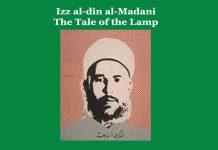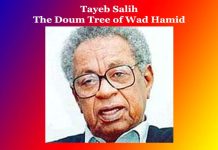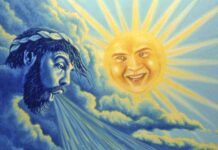Salwa Bakr | Ancestral Hair | Analytical Study
Salwa Bakr Ancestral Hair
Salwa Bakr’s Short Story ‘Ancestral Hair’ — An Analytical Study
‘Ancestral Hair’ is a Greek Arabic short story written by Salwa Bakr (born 1949-). It is a short story of character and it bears no specific plot. The main themes of the story are loneliness and death. The story portrays the lonely lives of two neighbouring widows.
The first one, as the author narrates, is a sixty-year-old widow of a rich husband. The couple had two sons. They had migrated to America but after the death of her husband, she returned to Cairo, Egypt leaving her sons in the New World and began to live in their old house. She felt lonely. She had a strong liking for the ancestral old things among which there were a pillow made of hair, a photo case of her mother and aunt. She was addicted to smoking a cigar.
On the other hand, the second widow was the author herself as we come to know from the narration of the story. She was a neighbour of the first widow. She was poor and after her husband’s death, she also became isolated from society. She had two sons. She had frequented the house of the first widow. She was astonished to see the first widow that she had some fascinating interest in collecting the old ancestral things. One day she went to the house of the first widow unexpectedly. There she noticed a long pillow. She also noticed that the widow had long hair with loose braids on her back.
The widow said that the long hair on her head was used to be the pillow of her mother. Each time she combed her hair with her ivory comb after her bath and she used to gather whatever hair had come out and put it in a coarse cotton bag until it became a pillow. The pillow was filled in with black, grey hairs. Her mother used to have a plait like a silver thread. Unfortunately, when her mother died she was in hospital as she gave birth to a child and people forbade her not to visit her dead mother as it might fall an effect on her baby.
The widow used to tell the author the stories of her life. Once she told that her father used to smoke narghile after his evening nap. The first time she smoked the narghile with her father and used to draw one or two puffs from it at first until she made sure that it was sure.
There is a theme of death in the story. The second widow was afraid that she might wake up one morning and not find her only certainty in this world. She was scared that her old neighbour Mourina Fathi might suddenly die and deprived of her dose of spiritual stimulation which gave her hope to live.
He often thought of death and wondered about that when she was having thoughts like these while feeling lonely at night, observing her sleeping whale (son) and his snorting that would go into a never-ending crescendo. She often asked herself, “Is death like an absence? If so, of what? The absence of outward appearance, features and body, the absence of the spirit, or the absence of shared moments? She searched for the true definition of death. This remained her obsession for a long time. Whenever she got off work, she would play a game with the computer. One day after putting some data she asked about death and got astonishingly naïve answers: the decomposition of the body and its passing away: the disappearance of a person, the cessation of heartbeats, the stopping of blood circulation, the end of brain function etc.
She thought, “There is a person who dies and on the other, the person who is shocked by the death of the one who dies. How do we evaluate death from the point of view of one party and not the other? Hence what is the assessment of death from the standpoint of the other party?”
Again she put the question to the computer and found:
“The eyes do not see. The ears do not hear. The mouth does not kiss. The hand does not touch …”
After some days, her neighbour, the first widow came to see the author after midnight. She had been knocking persistently. When she awoke and opened the door she found her standing in front of her flat. Looking very faint, she said she felt very sick. The author quickly drew her into her flat and made her lie down on her bed. She ran to the kitchen to get her some water, as she complained her mouth was dry. Soon after, she ran to the telephone and called a doctor from the nearest hospital. Then she rushed back to her and found her lying on the bed, motionless, with her head slumped on the edge of her pillow so that her braid was dangling on the floor.
Thus the author of the story ‘Ancestral Hair’ has brought about the themes of loneliness and death in the story.
The story is written in an autobiographical style being the author a character of the story. Here the author has thrown a glimpse of her personal life that she experienced in life.
The story has no structure as it has no plot. The author has only brought about the characterization of herself and a neighbouring widow.
The Setting of the story ‘Ancestral Hair’ seems realistic and fascinating. The author has given a vivid portrayal of the household with its belonging to her neighbouring widow. The opening of the story reads as follows:
Sometimes she seemed to me to be a weird genie who hung her braid from on high for me to climb to the summit of her tower. I then lost myself in her maze as though caught in the invisible thread of a spider’s web. What else could have tied me to this sixty-year-old woman with her six teeth? She could barely read a newspaper and moved with the grace of a turtle. I sometimes blame time, that wretched thief that seizes the days of our lives and mercilessly denies us the opportunity to reflect upon ourselves or others. Other times, I blame the savage geography of this aging city we are destined to live in for casting us onto one of its growing protuberances, like a fungus on its old, flabby body.
The author Salwa Bakr has employed sparing dialogue in the story skillfully which has brought about the inner motives of the characters.
The Philosophy of Life is also found in the story. The author has expressed his philosophy of life indirectly that in the male-dominated society women happen to suffer loneliness in spite of having children.
The Language of the story is simple and easy. It becomes fascinating as the author has used some similes as:
‘Should I not get on with my life with a son who is my disability, like a bird whose feathers have been clipped so it cannot rise or fly?”
My son was asleep in the bed like a beached whale.
The short story is feeble in structure as there is no plot to give a logical shape.
The short story is of ideal length as it is written not more than two thousand words. 0 0 0 Ancestral Hair’
Salwa Bakr ‘Ancestral Hair’ Analytical Study
Books of Literary Criticism by M. Menonimus:
- World Short Story Criticism
- World Poetry Criticism
- World Drama Criticism
- World Novel Criticism
- World Essay Criticism
- Indian English Poetry Criticism
- Indian English Poets and Poetry Chief Features
- Emily Dickinson’s Poetry-A Thematic Study
- Walt Whitman’s Poetry-A Thematic Study
- Critical Essays on English Poetry
- Tawfiq al-Hakim’s Novel: Return of the Spirit-An Analytical Study
- Tawfiq al-Hakim’s Novel: ‘Yawmiyyat Naib Fil Arayaf’-An Analytical Study
- Analytical Studies of Some Arabic Short Stories
- A Brief History of Arabic Literature: Pre-Islamic Period (500 AD-622 AD)
- A Brief History of Arabic Literature: Early Islamic Period (622 AD-661 AD)
- Reviews on William Shakespeare’s Works
- Reviews of Charles Dickens’ Works
- Reviews of John Milton’s Literary Works
- Reviews of Some Iconic Travelogues
- Shakespeare’s Sonnets-Critical Studies
- Analytical Studies of Selected Poems of Sarojini Naidu
- Analytical Studies of Selected Poems of Rabindranath Tagore
- Analytical Studies of Selected Indian English Poems
- Reviews of Selected Motivational Books
- Origin Evolution & Functions of Literature
- Essays on Shakespeare and His Time …











